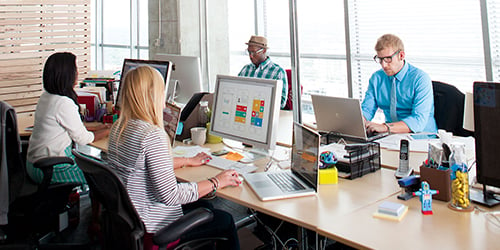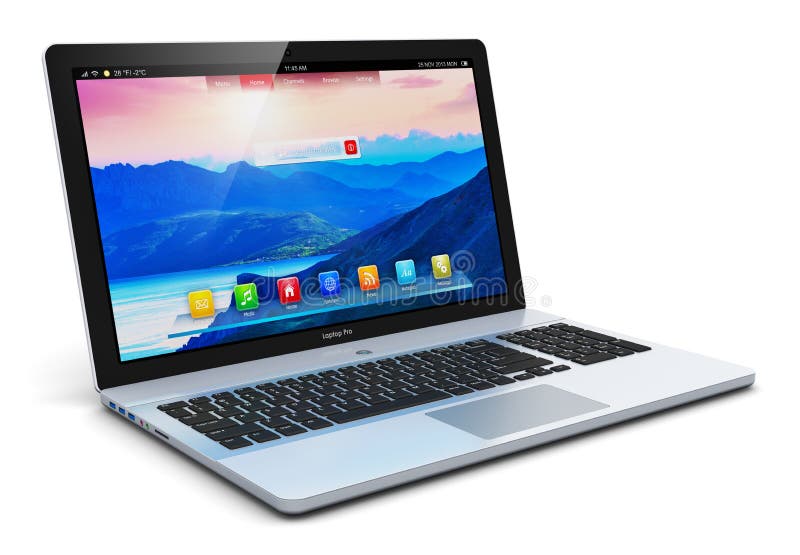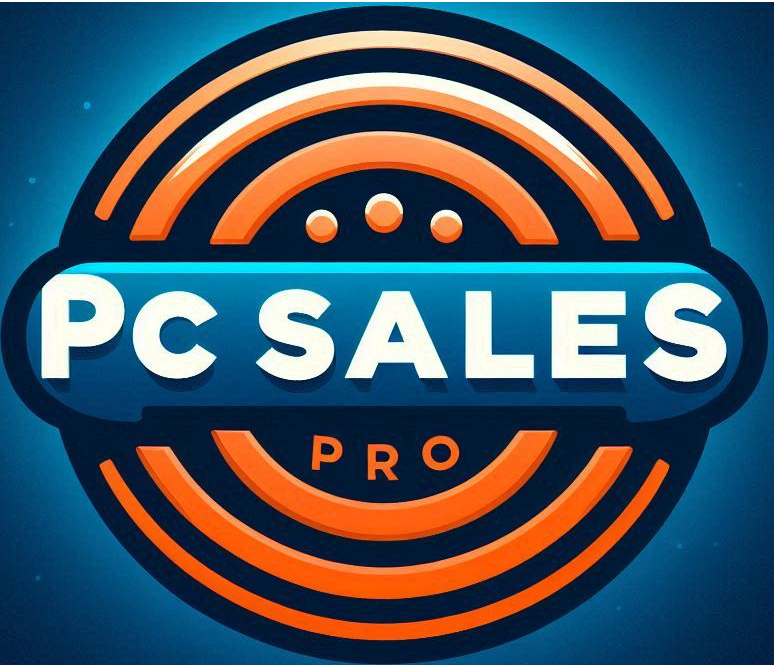Before deciding on purchasing any computer for a business, it’s crucial to analyze what your business genuinely requires. Start by listing the essential applications and software necessary for daily operations. Are workers running basic word processing tools, or do their tasks demand heavy-duty software like graphic design applications or data analysis programs? If upgrading the equipment in your office, do company employees/staff currently use Microsoft Windows or MAC-based platforms? Knowing these specifics helps narrow down what to look for when deciding on what Business Computers to buy.
Consider the number of users that require better equipment, and their specific roles in the company. As an example, a designer will require different hardware specifications compared to someone handling customer service. This delineation ensures everyone has the right type of computer for their tasks, boosting overall productivity.

Questions that need answering before purchasing Business Computers :
1. Is there a requirement for additional computers because the business is expanding or, are there some project areas that are increasing which require more powerful equipment?
2. Are newer PCs really necessary? Will they be used to upgrade older/outdated equipment?
3. How many PCs should the company purchase at this time AND will there be more needed sometime down the road? Keep in mind, sometime in the future you may be paying a lot more for electronics, processors, and computers if higher tariffs are imposed upon foreign made materials.
4. What type of budget restraints exist? Striking a balance between performance and cost is vital. High-performance machines are great, but if they blow the budget unnecessarily, it might not be the ideal choice. Sometimes, new computers used for employees working at home or purchased for an office can be of mid-range performance. These types of PCs are efficiently capable of running all required programs without lag. This might be something to consider, especially if scaling operations.
Desktop vs. Laptop: Which is Better for a Business?
Choosing between business desktop or laptop computers involves weighing the pros and cons based on how your business operates. Desktops often shine in performance and durability, making them ideal for work environments where power and dependability are a priority. They usually offer more bang for the buck in terms of hardware power since you can often get higher specs at a lower price compared to laptops.
![500+ Desktop Computer Pictures [HD] | Download Free Images on Unsplash](https://pcsalespro.com/wp-content/uploads/2024/11/500-desktop-computer-pictures-hd-download-free-images-on-unsplash-2.png) For businesses which thrive on flexibility and mobility, laptops are tough to beat. They’re portable, meaning a team can stay productive on the move—whether meeting clients or working from different locations. Modern laptops also come with robust features comparable to desktops, so there is not much sacrificing on the performance side.
For businesses which thrive on flexibility and mobility, laptops are tough to beat. They’re portable, meaning a team can stay productive on the move—whether meeting clients or working from different locations. Modern laptops also come with robust features comparable to desktops, so there is not much sacrificing on the performance side.

Finally, don’t overlook factors like space, mobility needs, and power. If a business environment supports stationary workstations and requires high computing power, then desktop computers might be the way to go. On the other hand, if space is limited as in a work from home environment or for employees frequently shifting work environments, opting for laptop computers could better serve business needs.
Sometimes, blending laptop and desktop computers is a great solution. A base of desktops for in-office work and a fleet of laptops for employees who need to travel or work from home could offer the best balance. Analyzing the role of each team member can help determine if they need a stationary or a portable setup.
Key Features to Look For in a Business Computer
When sifting through options available for configuring a business computer, recognizing critical hardware features that align with specific project tasks is vital. Processor speed, Memory, Storage Capacity, and Enhanced Visual Detail are all features that must be carefully considered.
Processor Speed: This ranks high on the priority list. Businesses requiring intensive multitasking or running heavy applications need computer processors, referred to as a Central Processing Units (CPUs), with higher clock speeds and an increase in multiple cores. This ensures seamless operation and minimizes lag during crucial tasks. A computer’s processor, or chip, is it’s main engine. The speed at which a PC runs programs, loads pages, and downloads files depends largely on it’s processor. Brands such as Dell, Hewlett Packard, or Lenovo offer Intel® Core™ series 5, 7, or 9 or AMD Ryzen 5, 7, or 9 processors with many of their business desktop and laptop computers. The higher the series number the higher the computer’s performance and price. When choosing a particular business PC go to the Brand and the Model offered, research what type of processor(s) is/are available, and make a decision.
Memory (Random Access Memory – referred to as RAM): This hardware item also plays a significant role in performance. It is an essential component in everything from desktop and laptop computers to smartphones. RAM is a high-speed, short-term storage solution giving applications, and an operating system itself, quick access to essential information. That saves time retrieving data from Hard Disk Drives (HDDs) normally found in many desktop computers, or faster Solid-State Drives (SSDs) that are the norm in laptop computers and also in some desktops. Even the best Solid-State Drives (SSDs) are slower than RAM. For most business applications, a minimum of 8GB of RAM is recommended. However, if business tasks involve handling large datasets or multimedia files, opting for 16GB or more can provide a more fluid experience.
Storage Capacity: This refers to the size of a computer’s Hard Disk Drive (HDD) or Solid-State Drive (SSD). The HDD or SSD stores files and any other information for the operating system, allowing it to function. It also contains all applications along with files that are accessed and run on the system. The faster the Drive along with it’s size (storage capacity) defines how the system and the user can perform his or her tasks effectively and efficiently. SSDs are highly preferred because they outpace HDDs in speed, offering faster boot times and quicker access to files which is where the computer’s Operating System will be installed. Even though SSDs are pricier, the performance boost they provide can be invaluable. SSDs are usually smaller in capacity when compared to HDDs. Depending on your data storage needs, you may need a balance between an SSD for operating speed and an additional HDD for increased storage (this primarily applies to desktop computers). Also you consider skipping the additional HDD if you elect to use cloud storage instead . If you are purchasing laptop computers, most only come with SSDs having anywhere between 250GB up to 1TB – 2TB capacity – you can even opt to go higher.
Display and Graphics Cards: For tasks requiring finer visual detail, such as video editing or design, a high-resolution display and separate, dedicated graphics card might be necessary. Popular manufactures of display or graphics cards are NVIDIA or AMD. Conversely, for general business applications, integrated graphics will suffice, keeping costs in track. Integrated graphics means that there is actually a separate Graphics Processing Unit (GPU) built into a Computer’s processor – there is a distinction when addressing a GPU as compared to a buying and configuring a system with a separate graphics card.
Pay attention to peripherals and connectivity options too. Adequate USB ports, HDMI outputs, and wireless connectivity options ensure a computer can interface effortlessly with all your business equipment. This flexibility is key to an adaptable work environment.
Selecting the Right Brand and Model for Your Business
Brand refers to the company that builds a computer (e.g. Dell), and Model refers to the line of the computer offered by that company (e.g. XPS) [a Dell XPS] . Choosing the right Brand and Model of a business computer is as much about reliability and customer support as it is about the specifications. Reputable Brands such as Dell, HP, Acer, Apple, and Lenovo are often favored for business use due to their strong track records in customer service and product durability. These Brands typically offer dedicated business computers tailored to meet professional needs. And, they offer a choice of product warranties (at reasonable costs) upon purchase. They can be acquired through Direct Sales, or through retail sellers such as Amazon, Best Buy, or FlexShopper (these are but few examples). If you are looking for something that best satisfies your needs and your budget, start your research to focus on the following:
- Computers purchased for small business should be different from equipment bought for personal use (there is no gaming in the office –right?). Desktop and Laptop PCs need to be high-performance to run a host of everyday tasks, like emailing clients, business apps, bookkeeping and project management.
- Battery Power should be considered for Laptop computers. Artificial Intelligence (AI) accelerated streaming along with professional and creation applications (such as real-time language translation), document automation, and creative production require strong battery capability. A constant power plug-in might not always be available where people are working.
- Boosting productivity and creating Generative-AI content, video editing, creating digital images, and multitasking takes a system that is configured with larger amounts of Memory, a larger Hard Drive for Storage, and faster Processor Speeds.
- Performing advanced multitasking across applications, running intensive programs and applications with built-in AI, such as Microsoft Windows Studio Effects, also requires larger amounts of Memory, Storage, and a faster Processor.
When picking any business computer, tailor your choice to your business-specific needs. As an example, when considering laptops, Lenovo’s ThinkPad and Dell’s Latitude lines are known for their robust security features and build quality, ideal for security-conscious environments. When considering desktops, Dell’s OptiPlex and the Hewlett Packard’s HP Elite Mini Workstation lines are also known for security and quality. If creative work is the cornerstone of your business, you might explore Microsoft’s Surface range for its high-quality displays and stylus support, which enhance design capabilities.
Also, buying refurbished or second-hand computers can be a tempting, cost-saving measure. As an example, and there are many examples, Brands, such as Dell or a retail outlet such as Amazon, often sell certified refurbished devices that come with a warranty and have gone through thorough testing. This can be a great way to equip your team on a tighter budget while still accessing high-quality devices.
While considering these options, weigh the pros and cons carefully. Newer Brand models will likely have longer life spans, top-notch access to the latest updates, and better access to replacement parts. Older models, however, can become obsolete faster but they do offer a certain degree of financial relief. Assess your business’s tech longevity needs before making a choice.
The Role of Business PCs: Pros and Suitable Scenarios
Understanding the distinction between a Business PC and a Consumer Model can guide your purchasing decision. Business PCs are engineered with corporate needs in mind, often featuring robust security measures, enhanced durability, and better support warranties. These aspects can prove invaluable for businesses dealing with sensitive data or operating in demanding office environments. Consumer PCs, on the other hand, have less durability due to less powerful Processors, Graphics Processing Units, lesser comparative Cooling Solutions, and Smaller Batteries.
In many scenarios, a Business PC is a worthwhile investment. Companies that require secure data handling and long operational hours can greatly benefit from the enhanced reliability of business computers. They’re designed for longevity and consistent performance, which can reduce downtime and increase productivity. However, not all businesses need these expanded capabilities. Smaller operations or industries not reliant on heavy data processing might find consumer-grade PCs more economical and sufficient for their needs. Consumer PCs handle everyday tasks like email, word processing, and web browsing efficiently, offering a low cost-effective solution for startup environments.
Carrying out a cost-benefit analysis can clarify if business PCs will align with a company’s operational goals. While initial costs are higher, the long-term savings in maintenance and support can outweigh the costs of consumer PCs, ensuring a business keeps running smoothly.
Consider the specific requirements and how investing in business-grade PCs will contribute to your company’s efficiency and security. Aligning all technology assets with a broader business strategy is key to sustaining growth.
